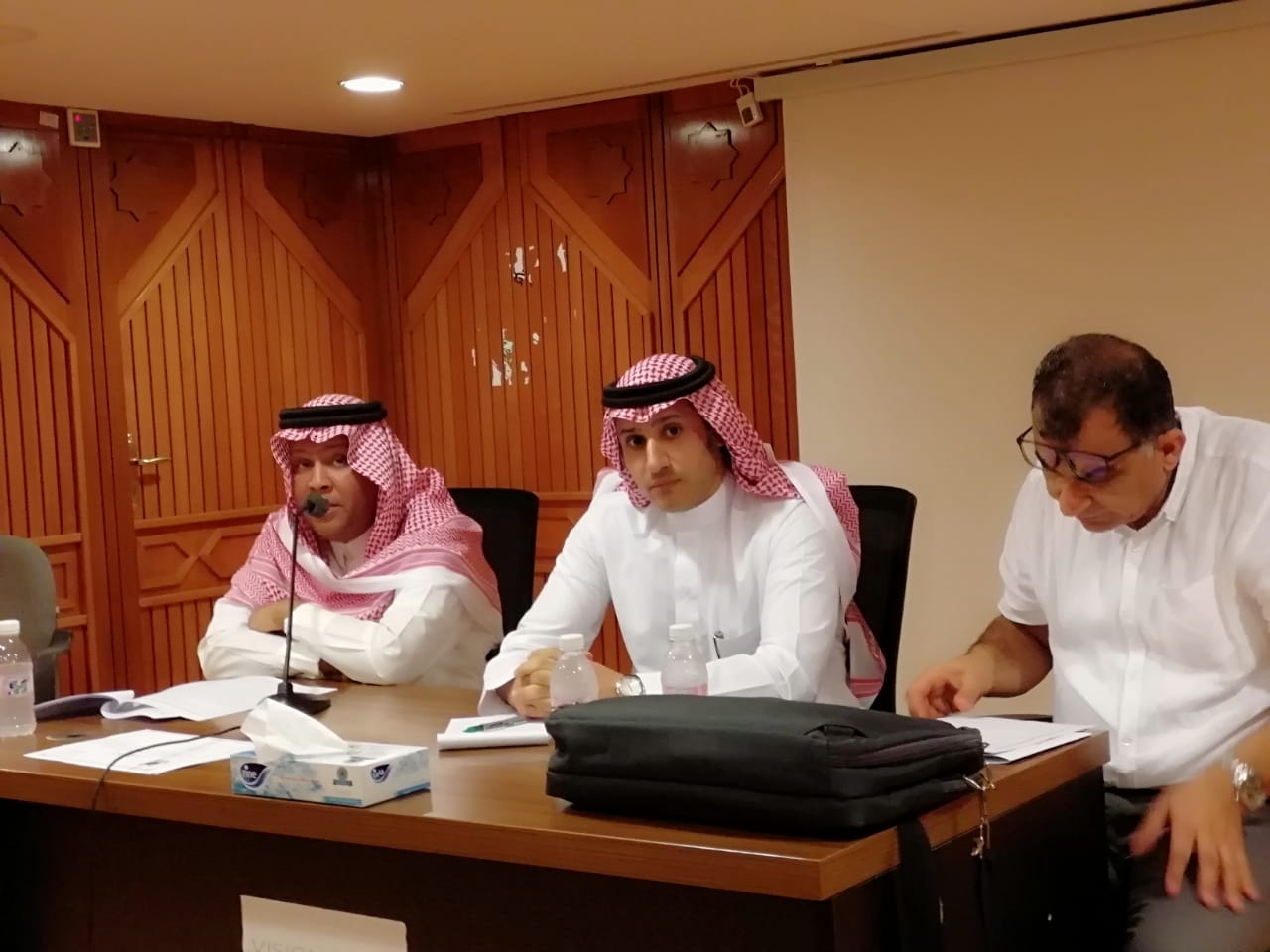
Under the gracious patronage of His Excellency the Dean of Al-Qunfudhah University College, Prof. Omar Hazzazi, the Department of Arabic Language organized a symposium entitled "Theater of the Arabs between Absence and Retardation: New Vision" on Monday 30 Jumada Al-Thani, 1441 A.H., corresponding to 24 February, 2020 A.C., in the Al-Qunfudhah University College theater. Prof. Lutfi Dibaish and Dr. Faisal Al-Miteab lectured in this symposium, which was moderated by Dr. Awda Al-Shimmari, Head of the Arabic Language Department.
The moderator opened the scientific symposium with a welcoming speech in which he put forth the problem of the symposium and its main issues, speaking about the role of the theater in identifying the reality of social variables and the formations in whose cognitive dimensions based on many issues research is made.
The first lecturer, Dr. Faisal Al-Miteab, professor of drama talked about the reasons for the absence of theater in the medieval Arab culture, attributing the matter to several things, including the fact that conflict in the Greek theater does not exist in our Arabic literature. Also, the issue of the origins of theatrical art as part of the colors of worship in Greek civilization does not help them to do it, whether in the pre-Islamic era or after Islam.
Dr. Al-Miteab believes that the Arab reluctance to take the stage lies in the connection of the old theater to myths. In this regard, he refers to a problem centered on the issue of Arab instability, whereas stability is a critical and important factor for the establishment of the theater. He talked about an important thing or the so-called 'rooting of the theater.' He pointed out that the rooting was nothing but a reaction to the national tide in the sixties of the last century.
As for the beginning of the theater, it was not with Maroun Al-Nakash. However, the first Arabic theatrical text was written by the Algerian playwriter Ibrahim Daninos in 1847 A.C. The discovery of this play is credited to the researcher Philip Sadgrove, Professor and Head of the Department of Middle Eastern Studies at the University of Manchester.
The second lecturer, Professor Lutfi Dibaish, raised several contentious issues about the origins of theater for Arabs. He gave his opinion on the relationship of theatrical literature with theatricalization and making it accessible for spectacle, considering theater an art, and drama an important literary genre for the development of Arab culture. He attributed the absence of spectacular theater in the Arab Islamic culture to the flourishing art of poetry in the era of oral transmission, when poets performed many functions, including chanting poetry, or reciting poems among literary sessions that were held in private or in public in literary markets and cultural events. Thus, spectacularity was not absent in Arab culture; rather, it was represented in forms other than the Greek theater.
Dr. Lutfi talked about drama and its effect in moving the Arab theater wheel as a spectacular art which attracts the audience and identifies itself with it through different senses: visual, auditory, and body language.
At the end of the symposium, the moderator gave the floor to the attendees for discussion and debate on the pillars and dimensions of the symposium themes. A number of speakers took the floor, especially the faculty members. The dean of the college, Dr. Omar Hazzazi, concluded with a word of thanks to the coordinators of the symposium. Certificates of appreciation were then awarded to the lecturers and the moderator.
Public Relations and Media Unit at Al-Qunfudhah University College (Female Section)